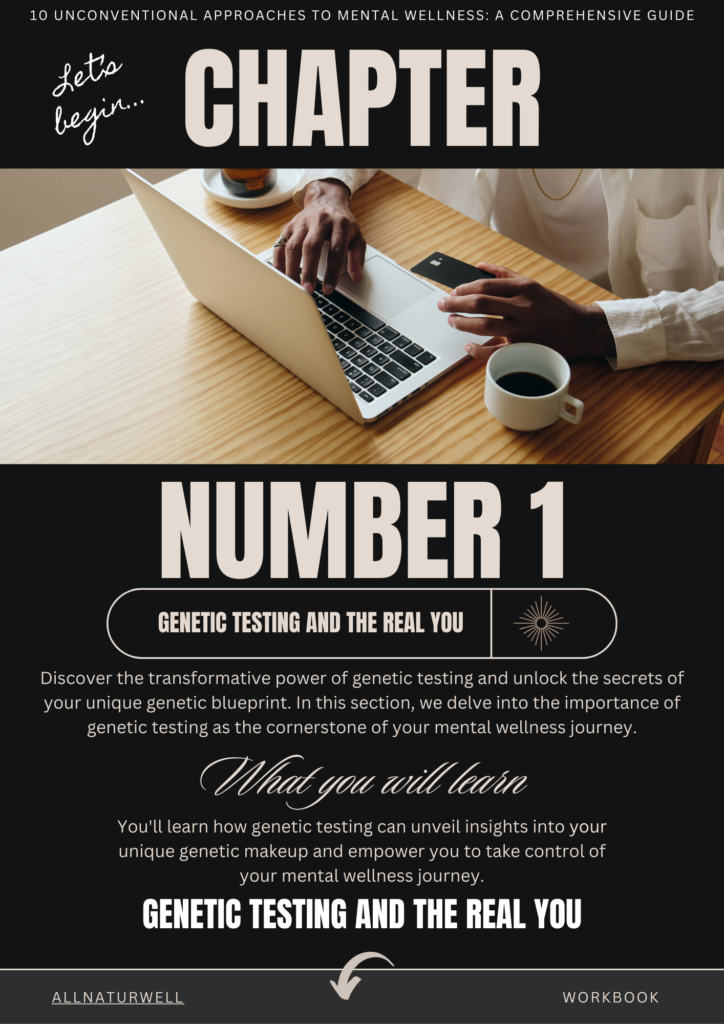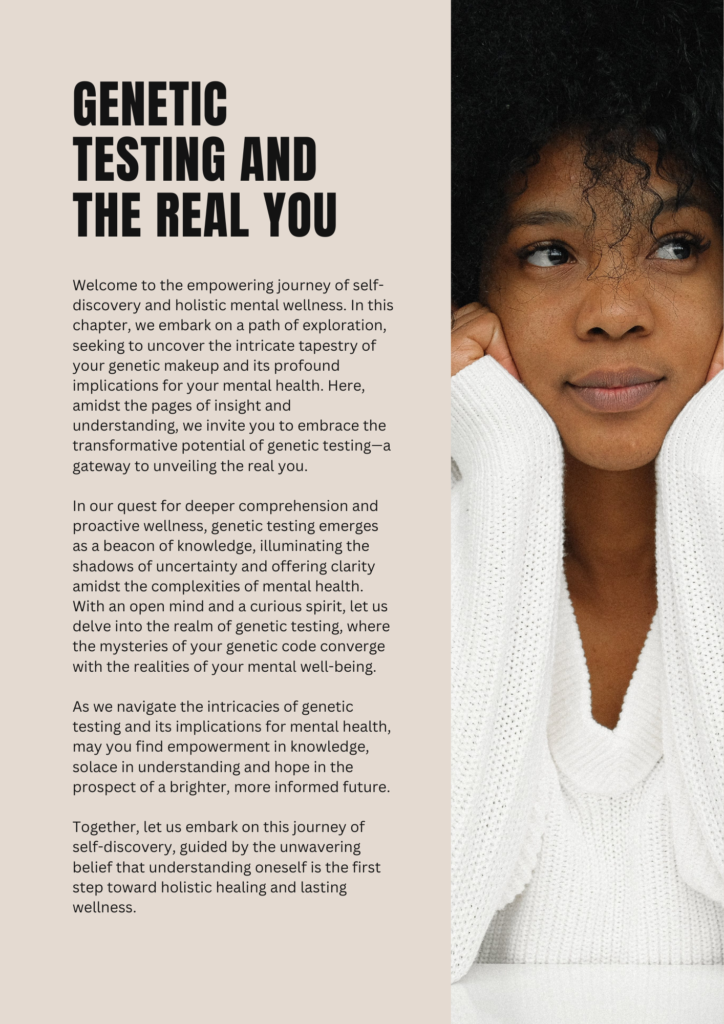The MTRR Gene Mutation

Overview
The MTRR gene is a key player in the body’s ability to process and utilize vitamin B12, crucial for maintaining healthy neurological function and overall mental well-being. Variations in this gene can disrupt these processes, leading to potential mental health challenges and complicating many others.
What is the MTRR Gene?
The MTRR (Methionine Synthase Reductase) gene encodes an enzyme that regenerates methionine synthase, a key enzyme responsible for converting homocysteine into methionine. This process is dependent on vitamin B12 and is essential for the production of S-adenosylmethionine (SAMe), a critical molecule involved in methylation and neurotransmitter synthesis.
What Does "Disrupting the Methionine Cycle" Mean and What's Actually Happening in the Body? (Or Not Happening That Should Be?)
The MTRR gene’s role is crucial in maintaining the methionine cycle, a metabolic process that recycles homocysteine into methionine, ensuring continuous production of SAMe. This process supports the body’s ability to methylate DNA, proteins, and neurotransmitters, which is vital for mental and physical health.
What’s Happening in the Body?
Under normal conditions, the MTRR enzyme ensures that methionine synthase remains active, allowing for the efficient conversion of homocysteine into methionine. This conversion is critical for producing SAMe, a molecule that supports neurotransmitter production and other essential methylation processes.
What Happens When Things Go Wrong?
Mutations in the MTRR gene can impair the regeneration of methionine synthase, leading to reduced methionine and SAMe levels and an accumulation of homocysteine. This disruption can have cascading effects on methylation, impacting mental health and overall well-being.
Impact on the Brain and Body
When the methionine cycle is disrupted due to MTRR gene mutations, several critical issues can arise:
- Mood Disorders: Impaired methylation can lead to reduced production of serotonin and dopamine, contributing to mood disorders such as depression and anxiety.
- Cognitive Impairments: Disruptions in the methionine cycle can affect cognitive function, leading to memory issues, reduced focus, and mental fatigue.
- Elevated Homocysteine Levels: High homocysteine levels are associated with an increased risk of cardiovascular disease, neurodegenerative conditions, and inflammation, all of which can exacerbate mental health challenges.
The MTRR Gene Mutation
MTRR Variants and Their Effects
A66G Polymorphism
G/G (High Activity):
Individuals with this genotype have higher MTRR enzyme activity, which supports effective regeneration of methionine synthase. This can lead to more stable homocysteine levels, reducing the risk of cardiovascular issues and cognitive decline. However, these individuals should still monitor their B12 levels, as B12 is crucial for the MTRR enzyme’s function.
A/G (Intermediate Activity):
This genotype represents a moderate level of MTRR enzyme activity. While methionine synthase regeneration is generally maintained, individuals may still experience fluctuating homocysteine levels, especially if their diet lacks adequate vitamin B12 and folate. These individuals might benefit from regular nutritional support to maintain optimal enzyme function.
A/A (Low Activity):
People with this variation have lower MTRR enzyme activity, which can impair the regeneration of methionine synthase. This can result in elevated homocysteine levels, leading to a higher risk of cardiovascular diseases, cognitive challenges, and mental health disorders like depression. Managing B12 levels and supporting methylation through diet or supplements is essential for individuals with this genotype.
MTRR Gene Mutation: Impact on Mental and Physical Health
Cognitive Function:
Impaired MTRR activity can lead to elevated homocysteine levels, which have been linked to cognitive decline, memory issues, and increased risk of neurodegenerative diseases. Individuals with low MTRR activity may experience more pronounced cognitive symptoms.
Mood Regulation:
Disruptions in methionine synthase regeneration can affect neurotransmitter synthesis, leading to mood instability, anxiety, and depression. Those with lower MTRR activity might notice more significant mood-related challenges, especially under stress.
Cardiovascular Health:
Elevated homocysteine levels due to reduced MTRR enzyme activity can increase the risk of cardiovascular diseases, including heart attacks and strokes. Maintaining adequate B12 and folate levels can help mitigate this risk.
Detoxification Processes:
The MTRR gene plays a role in the body’s methylation cycle, which is essential for detoxification. Variants that reduce MTRR activity can impair the body’s ability to detoxify harmful substances, potentially leading to an accumulation of toxins and oxidative stress.
The MTRR Gene Mutation
Impact of MTRR Variations on Mental Health
- Cognitive Function: Reduced MTRR activity can lead to elevated homocysteine levels, which are associated with cognitive decline and an increased risk of neurodegenerative diseases.
- Mood Regulation: Impaired methylation due to MTRR mutations can disrupt neurotransmitter production, leading to mood disorders such as depression, anxiety and irritability.
Why Understanding Your MTRR Variation Matters
Knowing your MTRR gene status can provide critical insights into your mental health and overall well-being. With this knowledge, you can implement targeted strategies to support methylation and manage any related health issues.
The differance between the MTRR and the MTR gene mutation
The MTRR and MTR genes both play crucial roles in the methionine cycle and the metabolism of homocysteine, but they have different functions within these processes. Here’s a breakdown of the differences:
MTR Gene (Methionine Synthase)
- Function: The MTR gene encodes for the enzyme methionine synthase, which is responsible for the final step in the conversion of homocysteine to methionine. This process requires vitamin B12 as a cofactor and is crucial for producing S-adenosylmethionine (SAMe), a vital methyl donor involved in DNA methylation, neurotransmitter production, and other critical biological functions.
- Impact of Mutations: Variations in the MTR gene can lead to reduced or impaired enzyme activity, potentially causing an accumulation of homocysteine and a decrease in methionine and SAMe levels. This can have significant effects on mental health, including an increased risk of depression, cognitive decline, and other mood disorders.
MTRR Gene (Methionine Synthase Reductase)
- Function: The MTRR gene encodes the enzyme methionine synthase reductase, which is essential for regenerating and activating methionine synthase (the enzyme encoded by the MTR gene). The MTRR enzyme ensures that methionine synthase remains functional and can continue to convert homocysteine to methionine, a process dependent on the continuous availability of active vitamin B12.
- Impact of Mutations: Mutations in the MTRR gene can impair the ability to regenerate methionine synthase, leading to a decrease in methionine production and an increase in homocysteine levels. Like MTR mutations, MTRR gene mutations can also contribute to mental health issues, including mood disorders, cognitive impairments, and elevated homocysteine-related cardiovascular risks.
Summary of Differences
- Role in Methionine Cycle: The MTR gene directly facilitates the conversion of homocysteine to methionine, while the MTRR gene supports this process by ensuring the MTR enzyme is continuously regenerated and functional.
- Enzyme Activity: MTR mutations affect the activity of methionine synthase itself, whereas MTRR mutations affect the regeneration and maintenance of methionine synthase activity.
- Health Impact: Both mutations can lead to similar health outcomes, such as elevated homocysteine levels and associated mental health and cardiovascular risks. However, they do so through different mechanisms within the methionine cycle.
In essence, while both genes are interconnected in the same biological pathway, they have distinct roles, and mutations in either can lead to significant disruptions in the body’s ability to maintain proper methylation and homocysteine levels.
The MTRR Gene Mutation
Holistic Approaches for Managing MTRR Variations
Managing MTRR variations involves a combination of nutritional support, lifestyle modifications, and mind-body practices. Here’s how you can approach this:
- Nutritional Support:
- Vitamin B12 Intake: Ensure sufficient vitamin B12 intake through diet or supplementation to support MTRR enzyme activity and the methionine cycle.
- Methylation-Supportive Nutrients: Incorporate folate, betaine, and other nutrients that support methylation and help maintain healthy homocysteine levels.
- Mind-Body Practices:
- Stress Reduction: Engage in stress management techniques such as meditation, yoga, or mindfulness to support overall mental health and reduce the impact of MTRR mutations.
- Mindfulness and Emotional Awareness: Practice mindfulness to improve emotional regulation and mitigate the effects of impaired methylation on mood.
- Lifestyle Modifications:
- Regular Exercise: Incorporate physical activity to support cognitive function and emotional well-being, both of which can be affected by MTRR mutations.
- Sleep Optimization: Prioritize sleep to support mental clarity, mood stability, and overall well-being.
The MTRR Gene Mutation
Taking Action: Managing MTRR Variations for Optimal Health
Taking action starts with understanding your specific MTRR gene variation through genetic testing. Once you have this information, you can implement a personalized plan to support methylation and manage any associated health risks:
- Work with a Healthcare Provider: Collaborate with a healthcare professional who understands the implications of MTRR mutations and can guide you in creating a tailored wellness plan.
- Targeted Supplementation: Based on your genetic profile, your healthcare provider may recommend specific supplements, such as vitamin B12 and folate, to support methylation and homocysteine management.
- Lifestyle and Dietary Adjustments: Incorporate holistic approaches into your daily routine, focusing on nutrition, stress management, and physical activity to support your health.
A Lifelong Journey to Optimal Health Through Holistic Living
Managing MTRR variations is an ongoing process. By embracing holistic living, you can support your mental and physical health over time, making adjustments as needed based on your body’s responses. Each step you take toward understanding your genetic makeup and implementing supportive strategies brings you closer to optimal well-being.
What’s Next: Tools and Resources to Support Your Journey
To continue on your path to holistic health, consider utilizing the following tools and resources:
- Personalized Genetic Testing: Explore genetic testing services that provide detailed reports on MTRR and related gene variations.
- Nutritional Guides: Access guides that offer insights into foods and supplements tailored to support the methionine cycle and overall health.
- Mind-Body Practice Resources: Utilize online classes or apps that provide instruction in mindfulness, yoga, or meditation to support mental well-being.
Conclusion
Understanding and managing MTRR gene variations is essential for maintaining optimal mental and physical health. By integrating holistic approaches into your lifestyle, you can support your body’s natural processes and achieve greater well-being. Remember, your health journey is unique, and embracing personalized strategies will empower you to live your best life.
YOU MAY BE INTERESTED IN:
Genetic Testing and the Real You
Disclaimer: The information and/or products mentioned in these article are provided as information resources only and are not to be used or relied on to diagnose, treat, cure or prevent any disease. The statements made in this article have not been evaluated by the Food and Drug Administration. Any products mentioned are not intended to diagnose, treat, cure, or prevent any disease, but rather to be considered as an informational resource only to encourage critical thinking and personal research. The information in this article is intended for educational purposes only. The information is not intended to replace medical advice offered by licensed medical physicians. Please consult your doctor or health care practitioner for any and all medical advice.
Sign up for our weekly newsletter. it's free!

52 Weeks, 52 Topics! Get Our Latest ‘Stay Well’ Newsletter Every Monday And Start Your Week Off AllNaturWell. A New Tip, A New Study Revealed, A New Product Reviewed. Get It Right To Your Inbox Weekly. No Need To Wait. It’s Free!



